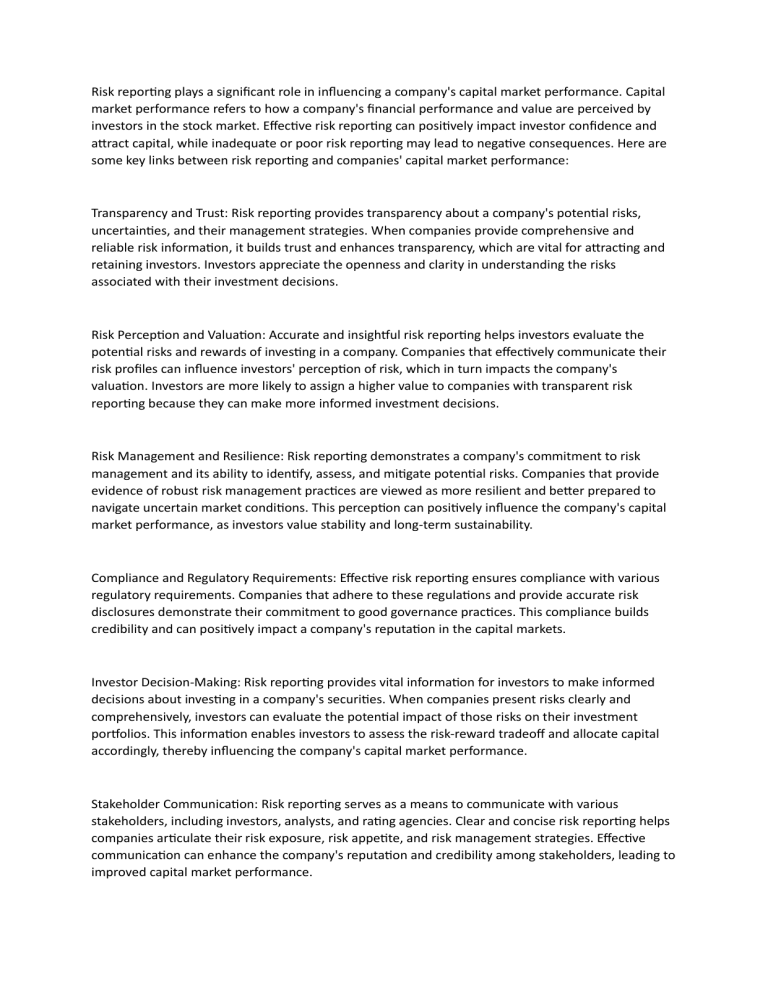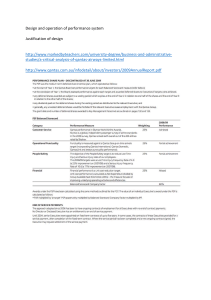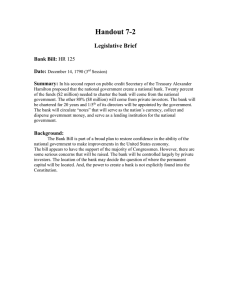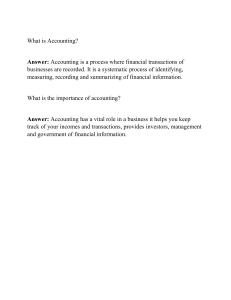
Risk reporting plays a significant role in influencing a company's capital market performance. Capital market performance refers to how a company's financial performance and value are perceived by investors in the stock market. Effective risk reporting can positively impact investor confidence and attract capital, while inadequate or poor risk reporting may lead to negative consequences. Here are some key links between risk reporting and companies' capital market performance: Transparency and Trust: Risk reporting provides transparency about a company's potential risks, uncertainties, and their management strategies. When companies provide comprehensive and reliable risk information, it builds trust and enhances transparency, which are vital for attracting and retaining investors. Investors appreciate the openness and clarity in understanding the risks associated with their investment decisions. Risk Perception and Valuation: Accurate and insightful risk reporting helps investors evaluate the potential risks and rewards of investing in a company. Companies that effectively communicate their risk profiles can influence investors' perception of risk, which in turn impacts the company's valuation. Investors are more likely to assign a higher value to companies with transparent risk reporting because they can make more informed investment decisions. Risk Management and Resilience: Risk reporting demonstrates a company's commitment to risk management and its ability to identify, assess, and mitigate potential risks. Companies that provide evidence of robust risk management practices are viewed as more resilient and better prepared to navigate uncertain market conditions. This perception can positively influence the company's capital market performance, as investors value stability and long-term sustainability. Compliance and Regulatory Requirements: Effective risk reporting ensures compliance with various regulatory requirements. Companies that adhere to these regulations and provide accurate risk disclosures demonstrate their commitment to good governance practices. This compliance builds credibility and can positively impact a company's reputation in the capital markets. Investor Decision-Making: Risk reporting provides vital information for investors to make informed decisions about investing in a company's securities. When companies present risks clearly and comprehensively, investors can evaluate the potential impact of those risks on their investment portfolios. This information enables investors to assess the risk-reward tradeoff and allocate capital accordingly, thereby influencing the company's capital market performance. Stakeholder Communication: Risk reporting serves as a means to communicate with various stakeholders, including investors, analysts, and rating agencies. Clear and concise risk reporting helps companies articulate their risk exposure, risk appetite, and risk management strategies. Effective communication can enhance the company's reputation and credibility among stakeholders, leading to improved capital market performance.







